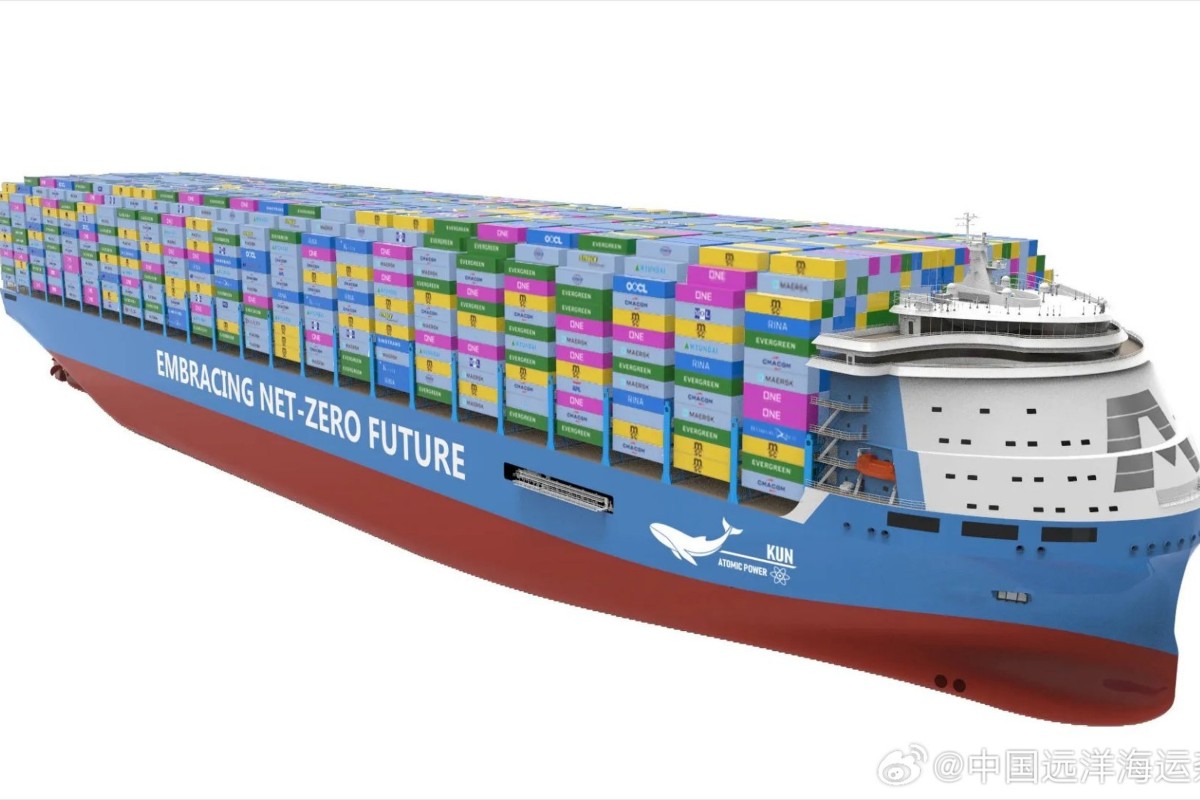- cross-posted to:
- china
- cross-posted to:
- china
Here the KUN-24AP container ship would be a massive departure with its molten salt reactor. Despite this seemingly odd choice, there are a number of reasons for this, including the inherent safety of an MSR, the ability to refuel continuously without shutting down the reactor, and a high burn-up rate, which means very little waste to be filtered out of the molten salt fuel. The roots for the ship’s reactor would appear to be found in China’s TMSR-LF program, with the TMSR-LF1 reactor having received its operating permit earlier in 2023. This is a fast neutron breeder, meaning that it can breed U-233 from thorium (Th-232) via neutron capture, allowing it to primarily run on much cheaper thorium rather than uranium fuel.
An additional benefit is the fuel and waste from such reactors is useless for nuclear weapons.
Another article with interviews: https://gcaptain.com/nuclear-powered-24000-teu-containership-china/



that seems… convenient. how do they know?
edit; and what’s with the coloured words, i was using the
backtick(`) to highlightBecause there has been over 50 years of extensive research?
https://www.iaea.org/resources/databases/marine-radioactivity-information-system-maris
We actually take samples and monitor those sunken reactors: https://www.hi.no/en/hi/news/2019/july/researchers-discovered-leak-from-komsomolets.
Water is a fantastic way of insulating radiation. Nuclear plants store used fuel rods in a pool that’s only 20-30 feet deep, and you could theoretically swim to within a few feet of the highly radioactive rods without issue.
A melted down nuclear reactor at the bottom of the ocean has zero ecological impact. It’s bizarre to consider, but it’s been backed up by extensive research.
Yeah but I’m worried about the radioactive metals themselves bioaccumulating in the surrounding wildlife.
The primary issue with land-based reactors is cooling to prevent it from reacting uncontrollably. If you’re sinking something to the bottom of the ocean there is no cooling problem.
Land reactors pretty much need to be on rivers, and from what i understand severe droughts forceshutdowns in europe a year or two ago.
This year too. Kakhovka dam bombing lowered the river level so much the Zaporozhia power plant would need to be shut down because of that, but it was already shut down by then because danger of AFU attacks. Also the drought in France caused several nuclear power plants to lower the output.
That’s the code highlight markup, which probably has some basic syntax filtering to pick out common keywords. Floor is a common math function, number could conceivably be a value used for a check in some languages, but I’m not sure why “on,” “no,” “left,” or “a” are highlighted and can only guess those are meaningful words in some languages.
Just to see what else it picks up:
That's the code highlight markup, which probably has some basic syntax filtering to pick out common keywords. Floor is a common math function, number could conceivably be a value used for a check in some languages, but I'm not sure why "on," "no," "left," or "a" are highlighted and can only guess those are meaningful words in some languages.left a numberleftanumbera numberleft aonnofloor a numberThis just raises more questions than it answered. Like I can kind of see it doing some kind of heuristic to guess what’s a function or variable name, but it’s not clear what looks like what to it. I guess that’s the issue with using it on normal text instead of just for code, where I’m assuming it highlights things rather more sensibly.